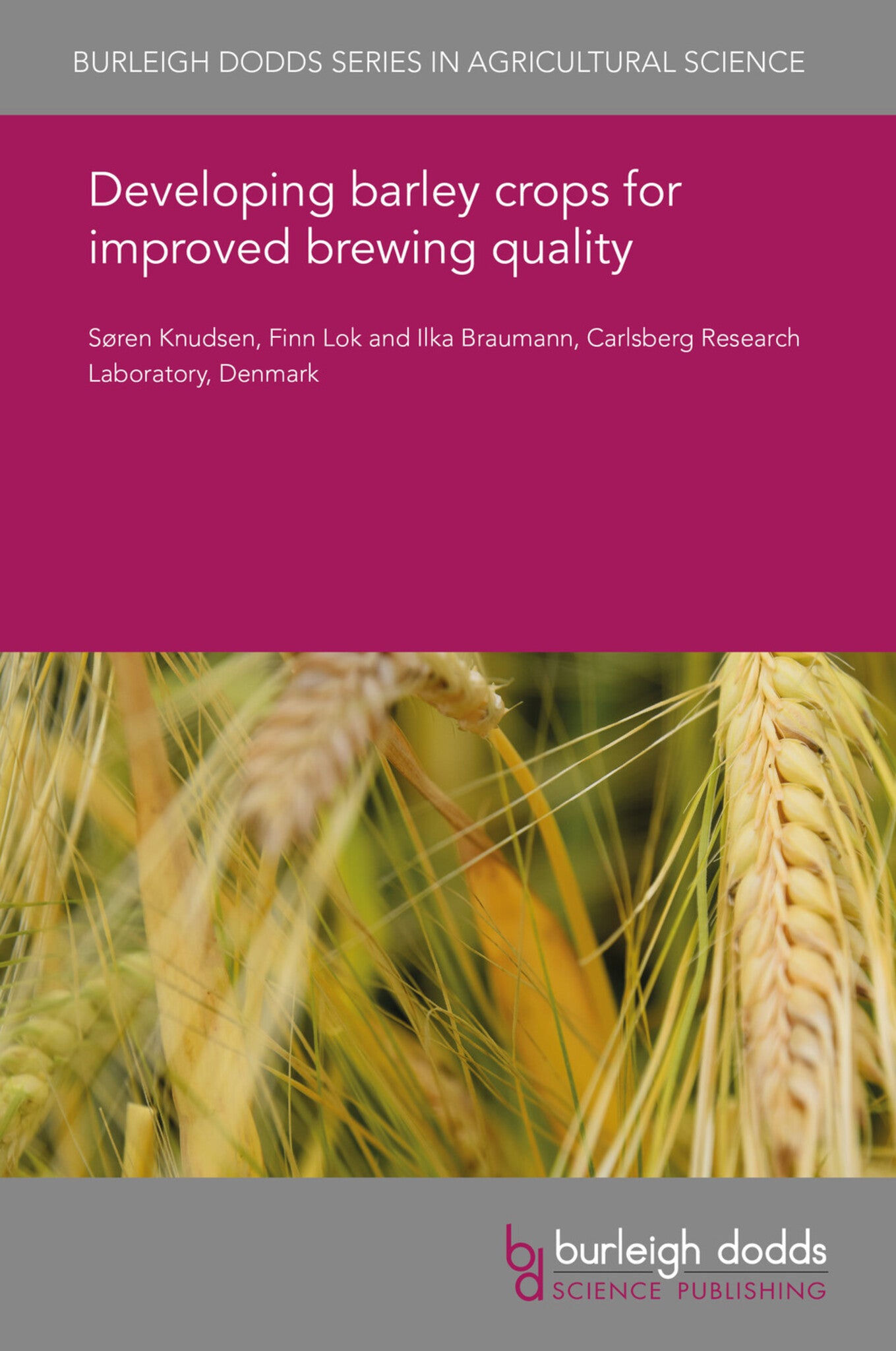We're sorry. An error has occurred
Please cancel or retry.
Developing barley crops for improved brewing quality
Regular price
£25.00
Sale price
£25.00
Regular price
£25.00
Unit price
/
per
Sale
Sold out
Re-stocking soon
Barley remains the most important raw material for the brewing industry. Consequently, breeders strive to develop barley varieties for the brewhouse that enable an energy efficient and economical i...
Read More

Some error occured while loading the Quick View. Please close the Quick View and try reloading the page.
Couldn't load pickup availability
- Format:
-
03 February 2020

Barley remains the most important raw material for the brewing industry. Consequently, breeders strive to develop barley varieties for the brewhouse that enable an energy efficient and economical industrial brewing process. However, converting barley into beer is a complex process involving several subsequent steps, both during malting and brewing, each with its very own requirements with respect to the raw material used. This chapter follows the application of barley throughout the brewing process. The chapter describes the different traits relevant during mashing, such as starch quality and heat stability of starch degrading enzymes; during wort boiling, filtration, maturation as well as in the final product, putting special emphasis on barley-derived off-flavours. The chapter discusses applicable breeding strategies. Finally, the chapter looks ahead to future research trends in this area and makes detailed suggestions for further reading in this area.

Price: £25.00
Publisher: Burleigh Dodds Science Publishing
Imprint: Burleigh Dodds Science Publishing
Series: Burleigh Dodds Series in Agricultural Science
Publication Date:
03 February 2020
ISBN: 9781786766175
Format: eBook
BISACs:
TECHNOLOGY & ENGINEERING / Agriculture / Sustainable Agriculture, Agronomy and crop production, TECHNOLOGY & ENGINEERING / Agriculture / Agronomy / Crop Science, Sustainable agriculture

1 Introduction 2 Converting barley into beer 3 Breeding barley for the brewing process 4 Brewing traits related to the quality of the final product 5 Conclusion and future trends 6 Acknowledgements 7 Where to look for further information 8 References



